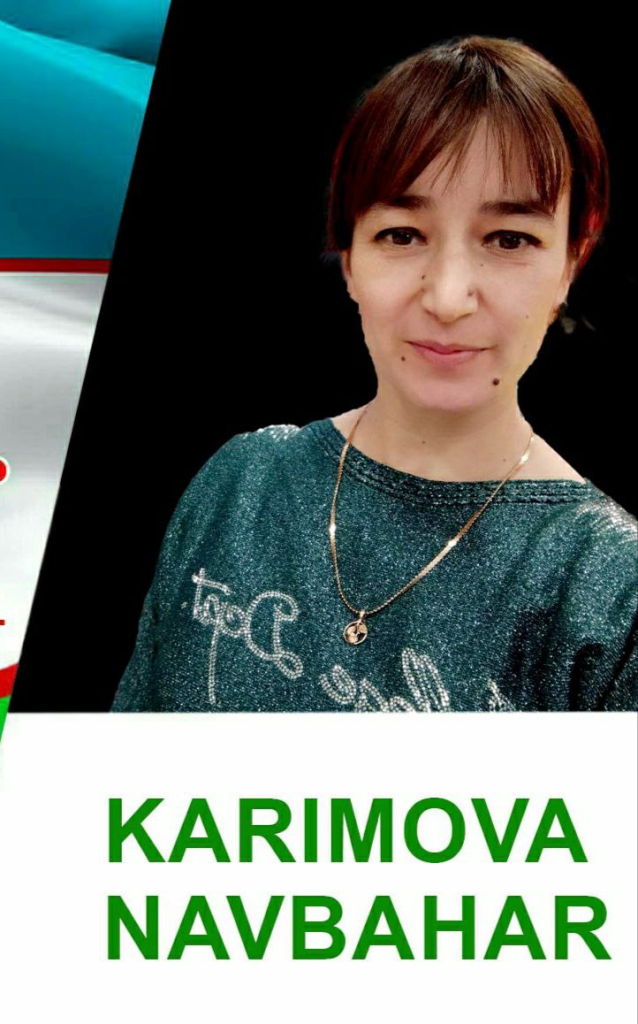
REFORMS IN THE PRESCHOOL EDUCATION SYSTEM
Abstract:
This article examines the attention being paid to the education system, reforms currently underway in Uzbekistan’s preschool education, achievements reached through preschool services, and reforms in higher education aimed at accelerating intellectual development.
Keywords: Preschool education, social life, reform, foundation, education and upbringing, globalization, concept, professional competence, material‑technical base.
Today’s young generation, which will determine the future and prospects of our homeland, must be raised with dignity—this is tied to the continuous modernization of education and upbringing. Expanding access to preschool education, improving the quality of preschool services, ensuring favorable conditions for full participation in life, and integrating children into social life are among our most urgent tasks. In New Uzbekistan, comprehensive reforms are underway across all sectors. It is impossible not to emphasize the transformative changes in education—the foundation of society—driven first and foremost by preschool reforms, which play a critical role in preparing children for global realities and in shaping their entry into societal life.
Today, modern kindergartens that meet current standards are being built not only in major cities but also in remote rural areas. Over just five years, the number of preschools in our country has quadrupled. Until recently, preschool teachers—and in some districts even students—were sent to harvest cotton for four months. Thanks to recent reforms, those practices have been eliminated.
In the last five years, educators at preschools have received one‑and‑a‑half times salary increases; the number of educators honored with state awards and participants in national competitions has grown; paperwork has been significantly reduced; and bureaucratic red tape has declined—these changes have paved the way for remarkable improvements in preschool education.
Efforts have also been made to enhance the capacity of personnel in preschool institutions. Regular scientific‑practical seminars and training sessions have been held, introducing innovative ideas and technologies into educational processes and promoting the comprehensive professional development of educators.
Higher education reforms are also a major part of the current transformation in the education sector. In particular, the Concept for the Development of Higher Education in Uzbekistan until 2030 serves as a prelude to these reforms. The Concept aims to expand the enrollment capacity of universities, improve the quality of education, implement digital technologies and education platforms, and involve youth in scientific activities—all of which raise the education process to a new level of quality.
That said, even more important priorities remain before us, requiring our attention. These include further improving the preschool education system, expanding the network of preschool institutions, strengthening their material and technical base, ensuring qualified teaching personnel, and implementing modern educational programs and technologies to foster children’s intellectual, moral–aesthetic, and physical development. Our primary goal is to significantly elevate children’s readiness for school, because our future and destiny rest on the young children growing up in these institutions.
Our esteemed Leader’s words—“The future and prosperity of our country are tied to what kind of people our children grow up to be. Our main duty is to create the necessary conditions for youth to realize their potential”—carry great trust and responsibility for preschool educators. They call us all to patriotic service. Let us be mindful of the fate of our children, our nation’s future.
Conclusion:
Reforms in preschool education today are as relevant and impactful as reforms in any other sector. Expanding these reforms broadly is a necessity of the times. Every teacher should approach his or her work with responsibility, informed by the conclusions drawn from these national initiatives.
References:
- Resolution No. 802 of the Cabinet of Ministers of the Republic of Uzbekistan on approval of the State Standard for Preschool Education and Upbringing, December 22, 2020
- Qodirova F.R., Toshpo‘latova Sh.Q., Kayumova N.M., Agzamova M.N., Preschool Pedagogy, Tashkent: Tafakkur Publishing, 2019
- Strategic Development Program of New Uzbekistan for 2022–2026
- SH.M. Mirziyoyev, “We will build our great future together with our brave and noble people,” Tashkent, 2017
- president.uz
- www.gov.uz
- lex.uz
Karimova Navbaxar Mahmudjanovna
Born on March 25, 1984, in Gurlan district of Khorezm region, into a family of intellectuals.
From 1990 to 1998, she studied at School No. 1 in Gurlan district. From 1998 to 2001, she continued her education at Gymnasium No. 6 in Gurlan, graduating with excellent marks.
Between 2001 and 2003, she studied in the Nursing field at the Electro-Medical Technical School in the capital city, Tashkent, and successfully graduated with honors.
From 2020 to 2025, she completed her bachelor’s degree in the field of Preschool Education at Urgench State University.
Currently, she is working as an educator at Preschool Educational Institution No. 9, a multi-disciplinary specialized preschool institution under the National Agency for Social Protection under the President of the Republic of Uzbekistan, located in Gurlan district, Khorezm region.
She is fluent in both Russian and Turkish.
- In 2023, she was awarded the badge of honor “Devoted Specialist of Her Profession”.
- In 2024, she was awarded the badge of honor “Top Scientific Researcher of the Year”.
- In 2025, she received the honorary badge “Excellence in Preschool and School Education”.
She is the author of the methodological guidebook “Inclusive Education in Preschool Institutions”.
Her published books include: “Towards My Goals”, “For You, Dear Child”, and “Discoverer Children”.
She has published numerous articles in international newspapers and journals.
Her article “STEAM Technologies in Preschool Institutions” was published in Turkey in the book titled “Leading Women and Girls of Uzbekistan”.

Pingback: Synchronized Chaos August 2025: Longings of the Heart | SYNCHRONIZED CHAOS